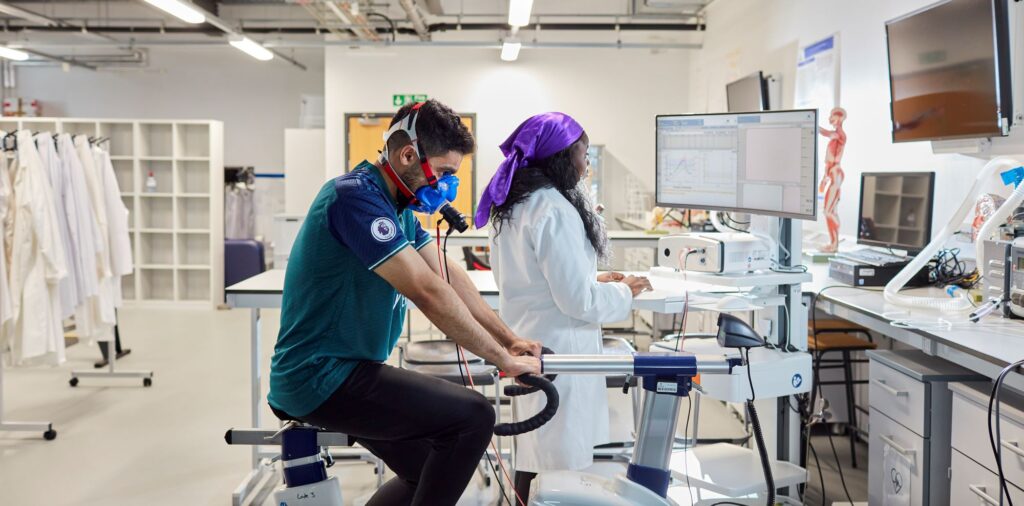High school students work very hard to impress colleges, looking for some kind of spark or edge that will make admissions officers sit up and take notice of what they have accomplished. Recently, research has become a very popular way to do this, with many students looking to pursue and publish independent research projects with an eye towards standing out to admissions officers. We work with students on this often through our research mentorship program, and have helped students conduct research on everything from machine learning to economic trends. One issue many students face when first considering what to do research on is that no academic subjects really call to them. They don’t hate math or science, but nor can they muster much enthusiasm for hundreds of hours of study for these topics. These students often see research as a closed avenue to them, or something they must suffer through. There is a secret though, and that is that you can turn almost any passion you have into a research project, and one that will impress colleges. To explore how this is possible, we’re going to look at how you can turn a passion for sports into a research project, and how these projects can serve to elevate your own college applications. Let’s get started!
Sports, Statistics, and You
Anyone who watches much sports realizes that there are a lot of numbers involved; statistics have always been a part of sports of course, and are becoming even more so as tracking methods get more advanced. Anywhere there are numbers, there is research to be done, but the trick is finding what particular topic interests you enough to pursue in depth.
To do this, you should decide generally what academics are of interest to you, or at least intrigue you enough to be worth investigating. If, for example, you prefer biology to math then sports medicine is an active field, with studies of biomechanics and reaction times amongst other possibilities. Those with more of an interest in business can instead look into the economics of sports and the businesses that surround it, from player salaries to the income from ticket sales based on when and where a game is played.
This tracks across near every field you can imagine, and some you haven’t likely considered. Thus a passion for sports can be turned into research papers on sociology, or statistics, or psychology, or biology; the list goes on. The trick then becomes turning this interest into a topic you can research, and learning to do this research along the way.
How to Choose a Research Topic
All research begins with a question. This was true from the earliest days of scientific study, when ancient philosophers pondered things like why the sun rose and set, and the shape of the earth. Our understanding of the world has grown significantly since then, but research still begins the same way: with a question.
Thus, when beginning your own research projects, start with questions that you have about sports (or any other passion of yours) that you would want to find answers to. Here are a few questions to consider; these are not research questions themselves yet, but are a starting point:
- Does the legalization of sports betting create new incentives for sports leagues?
- Is home field advantage a real thing?
- Do different playing surfaces have different injury rates?
- How much does a single rule change increase the odds of a particular team winning?
These are all broad questions, and must then be narrowed down. Let’s say that you’re interested in the business of sports betting, and whether that creates new incentives for leagues. From here, you should begin looking into what research has been done on this topic before.
The point of this is to see what questions have already been asked and answered. Google scholar is a great place to get started; you may not be able to access every journal, but it will allow you to access a broad array of publications. You should look for people who have either asked the same question as you, or who have asked similar ones.
Since the legalization of sports betting is relatively new in the US, much of the scholarship on it is relatively recent. You may find that there are many questions left unanswered by current research. Indeed, in reading some of these papers, you may find that the authors themselves suggest avenues for further study that appeal to you. Now that you have a general understanding, it’s time to make a hypothesis.
Crafting a Hypothesis
A hypothesis is a theory that you believe is true, that you then test with experimentation and evidence. For a sports betting subject, you may have the hypothesis that leagues which legalize sports betting are more likely to make refereeing decisions more transparent, to avoid claims of bias or game-fixing.
This hypothesis may or may not be true; that’s the entire point. A hypothesis should be limited in scope enough to be testable, and be something that you can find evidence to falsify or verify. This may mean you need to consider several different hypotheses; something that seems minor may involve more work than previously anticipated, or data may be harder to collect than anticipated.
This is also a normal part of the scientific process; and is something that all researchers run into at some point. A good hypothesis takes time, but can lead to some truly interesting, and unexpected, results. Once you have your hypothesis, it is time to determine if it is correct or not.
Gathering Data
There is one major perk to researching sports, and that is the staggering amount of data available. Scores, plays, and even the most minor statistics are tracked and compiled by fans meticulously, giving you a huge sample set to work with. This data is also generally publicly available and easy to access. Indeed, certain data points even act as an interesting insight into statistics and modeling, such as the concept of Wins Above Replacement in baseball.
There is a significant amount of financial data available, from player salaries which often enter the news when they break records, to more detailed records. Most of these do come from a single organization, the Green Bay Packers, which gives researchers a wonderful window into how the business of sport operates.
Whatever you are researching, you can likely find data on it available, though it may take some work to dig up. This is very useful; unlike other fields where you may need to do long hours of experimentation yourself to collect data, here you just need to do some searching and remember to cite your sources.
Analyzing this data is, of course, still up to you. This can be a challenge for students, as methods of statistical analysis are not commonly taught in high school. This is where a research mentor is useful. In undergrad, students can find jobs working in labs or with professors and learn the methodology that way, but high school students can sometimes access these resources as well. Our research mentorships serve this exact purpose, partnering students with an experienced and well-published researcher who can teach them the methods and modelling techniques they need to analyze their data. Schedule a free consultation today to learn more.
Once you have analyzed the data, you can see whether or not it supports your hypothesis. Whether or not it does, this is still an interesting result, and tells you something exciting about the state of sport. With this all done, you can compile your findings, and work to publish your results.
Publishing Sports Research
Of course, the ultimate point of doing research is to share it with others; this both advances the state of global knowledge, and looks really impressive to admissions officers. This intimidates many students, and honestly many adults too. Submitting your work for review and criticism by experts is never an easy thing. Indeed, many students worry about whether or not journals will accept work from high school students.
In practice, however, what most journals care about most is the quality of the research you have completed; your identity as the author is secondary. High school students can and do get published in professional journals, if their work meets that journals standards.
Sports itself has a number of dedicated publications, which are broken down by field (as is the case with all academic journals). Thus if you have written a paper about the mindset of athletes, then you may be able to publish it somewhere like the Journal of Applied Sport Psychology. One on ticket prices and consumer behavior may find a home in the Journal of Global Sport Management.
This holds true regardless of what specific field you have written your paper on; you will be able to find a journal dedicated to that field to submit to. Now, writing an academic paper is slightly different from writing one for school; we have a whole guide to that in an article here. Still, we do recommend all students pursuing research also undertake publication; after all, what’s the point of learning something interesting if nobody else can ever find out about it?
As a final note, this is true for any field and passion you have. You can do research on eSports, or the theatre experience, or the economic impacts of fan fiction. The world is a vast and complicated place, and those striving to understand it look in all sorts of unlikely places to gain new insights. Many students are reluctant to pursue research because they think it will lock them into long hours studying things they don’t care about, when instead the opposite is true.
Final Thoughts
Applying to college is always hard, but one of the best ways to set yourself up for success was and continues to be doing something impressive of your own initiative. Pursuing a research project because it interests you is a great way to do this, and many students are discovering in the process that research can be rewarding for its own sake too. We hope this article has allowed you to see research in a new light, and given you ideas for how you can pursue it.
Of course, doing research is always a challenge, especially for high school students. This just isn’t something you are taught to do in high school. For this reason, Ivy Scholars offers research mentorships, where we pair students with experienced researchers to conduct a research project. Schedule a free consultation today to learn how this works, and how pursuing a project of this kind can help you with your own path to a top university.








